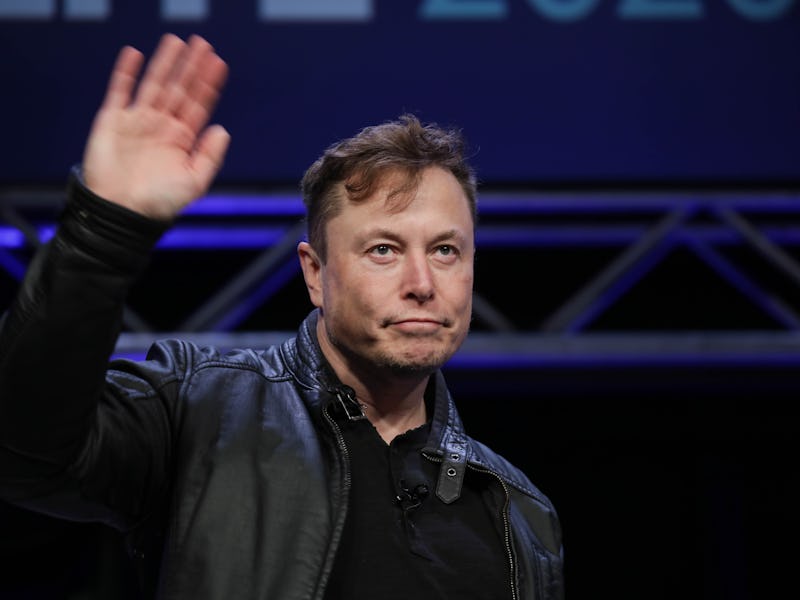Only Elon Musk knows what he's doing — but we have some ideas
It's a guessing game that everyone loves to play.

One has to wonder: what was it like when Tesla and SpaceX’s investors first saw Elon Musk’s Twitter feed? Likely, they didn’t think much.
Musk first joined the service in 2011 and used it intermittently for the first several years. A good way to keep up the brand, perhaps, but nothing more. But in 2015, as the Wall Street Journal has documented, he started using Twitter more. And more in 2016. And more in 2017. Now, it’s five years later and he's saying Telsa’s stock price is too high, typing out the “Star-Spangled Banner,” and promising to sell off all of his possessions.
Musk's investors likely care a lot and wish he would stop tweeting about stock prices. After getting in trouble for tweeting he had secured funding to take the company private at $420 per share back in 2018 Musk and the SEC reached a settlement that defined nine categories of information that must be screened, including Tesla’s “financial condition, statements, or results, including earnings or guidance.” That debacle cost Musk and Tesla $20 million.
Tweeting out that Tesla’s stock price is too high would seemingly violate that settlement, and the stock market is gearing up for future punishment: Tesla’s stock began the day valued at $755, and as of 1 PM EST was down to $710.
One of Elon Musk's tweets that could get him in trouble with the SEC.
Unrelated to Tesla stock, these tweets were also unexpected.
But at the end of the day, what’s the harm? Tesla and Musk recovered fine from the first debacle, and there’s no real reason to think another slap on the wrist will do any long term damage to a company some believe will have a market value surpassing $1 trillion within five years. Considering that some analysts agree with Musk and say the company’s stock price is too high and needs to be more closely tied to profit, he might have just done his investors a favor. Forcibly get prices down, take the public blame, and then take less heat in the future.
Musk's eccentricities call to mind eccentric moguls of years past, like Howard Hughes, who branched into almost as many fields as Musk; and Henry Ford, who, like Musk, sought to escape civilization by building as remote a city as possible, except in the rainforest instead of on Mars. If investors of years past tolerated Hughes and Ford their oddities, then surely they can do the same now.
But for the rest of us, it’s hard to know what to do with the daily drama Musk creates online. That he would sell all of his homes is a little hard to imagine, considering that over the last decade he has spent approximately $100 on seven properties in the Los Angeles area, where his companies are based.
There’s also the question of his wording. Elon Musk might have clearly bought his houses, but they’re all owned through either the Elon Musk Revocable Trust or a variety of other Limited Liability Companies, according to a separate 2019 story from the Journal. He could very well own no possessions while his Trust owns them all. Or he could be selling his homes to shore up cash during the expected Covid-19 crunch. Maybe he’s tired of homeownership and wants to rent condos. Who knows?
The Inverse Analysis: It’s a fool’s errand to guess what is going on behind another person’s tweets. Musk could be coldly calculating that his attention-grabbing stunts will deliver on a business-driven result, he could be on drugs, he could be feeling the pressure of his sixth child (due on Monday, he said in a tweet), he could be bored during a quarantine he’s made it very clear he hates.
Whatever the case, he’ll most likely be back at it again tomorrow, or next week, drawing eyeballs in a way only he seems to know how.
Correction: In 2018, Musk posted on Twitter that he was considering taking Tesla private at $420 per share. A previous version of this article misstated the valuation. Inverse regrets the error.